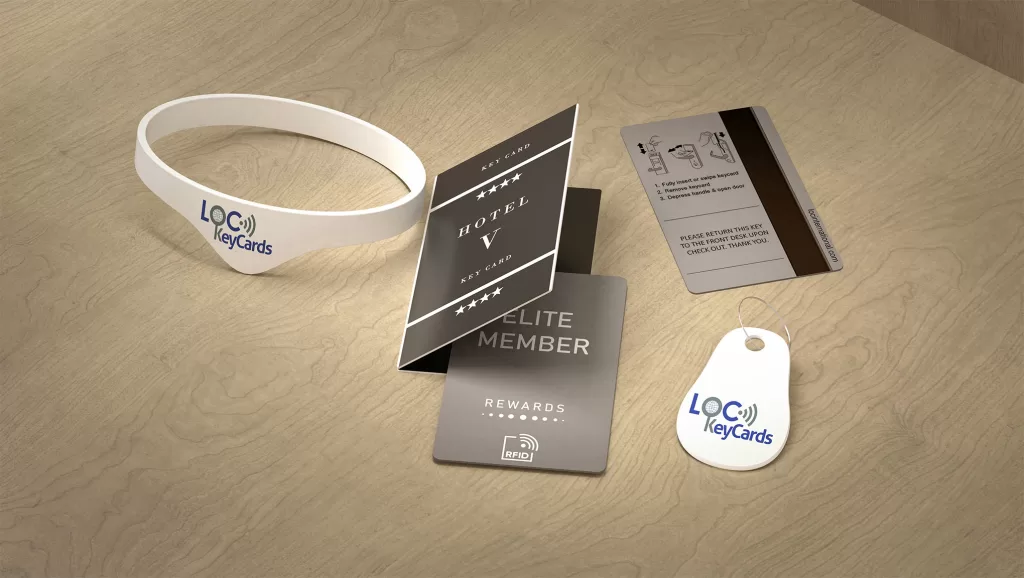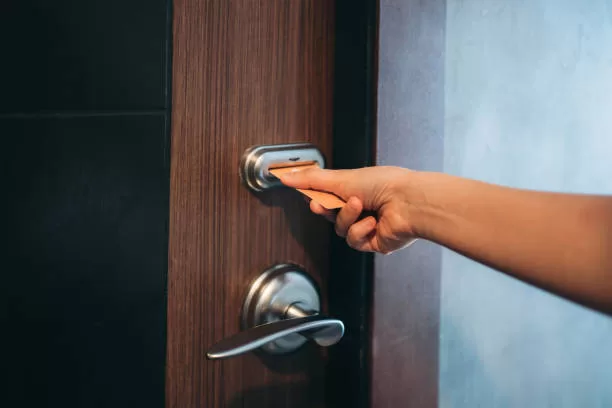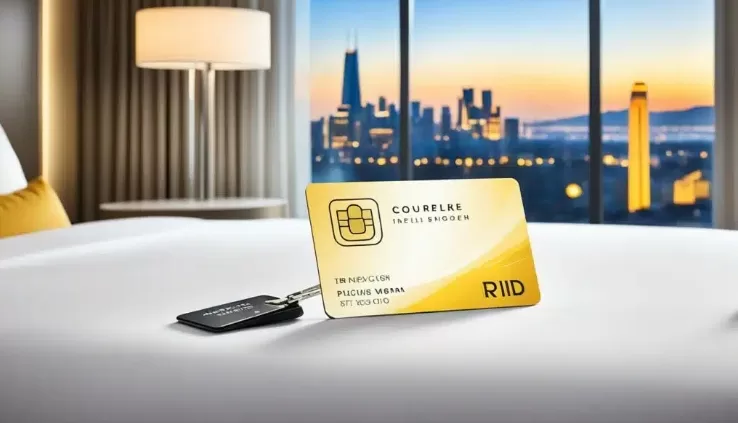
What is the range of RFID hotel key card for access?
RFID hotel key cards have revolutionized how hotels manage guest access and security in the hospitality industry. Beyond unlocking doors, these cards can also serve as valuable data collection tools. Understanding the data types that can be collected from RFID hotel key cards can help hotel operators optimize their services and improve the overall guest experience.
RFID hotel key card Basics of Data Collection
RFID hotel key cards are embedded with radio frequency identification technology, enabling them to communicate with card readers installed at various access points throughout the hotel. This interaction allows manufacturers to collect data about guest access and usage patterns. Each time a guest uses their key card, the system records vital information, including timestamps, access locations, and the card’s status. Understanding these data points is crucial for hotel management to enhance operational efficiency and improve guest satisfaction.
The data collected from RFID key cards can be categorized into operational and guest experience data. Operational data includes metrics like access times and frequency, which help hotels manage resources efficiently. On the other hand, guest experience data provides valuable insights into preferences and behaviors, enabling hotels to tailor their offerings more effectively. By leveraging this information, hotels can streamline their operations and create personalized experiences that resonate with their guests.

Collect access logs and entry points
Access logs are among the most significant data points collected from RFID hotel key cards. When guests use their key card to enter a room or access restricted areas, the system records the date, time, and location of the entry. This information is crucial for hotel management, as it helps track guest movement and can assist in identifying patterns of behavior.
Access logs provide a wealth of information. For instance, hotels can analyze peak entry times to allocate staff resources better. The hotel can adjust staffing to ensure efficient service if data shows that many guests check in during a specific time frame. Furthermore, access logs can also be instrumental in identifying unusual patterns that might indicate security issues, such as unauthorized access attempts or guests lingering in certain areas. By using this data proactively, hotels can enhance both security and guest convenience.
Collect guest preferences and usage patterns
In addition to access logs, RFID hotel key cards can capture data on guest preferences and usage patterns. This data can include information about amenities guests frequently access, such as fitness centers, pools, or lounges. By analyzing this information, hotels can gain a deeper understanding of what their guests value most during their stay.
Tailoring services based on these insights can lead to enhanced guest satisfaction. For example, if a hotel notices that a particular guest frequently visits the pool, they could offer personalized promotions related to poolside services, such as cabana rentals or refreshments. Similarly, if data shows that guests often utilize the gym, the hotel might consider offering fitness classes or forming partnerships with local gyms to enhance the guest experience. Hotels can foster loyalty and create memorable stays that encourage repeat visits by leveraging guest preferences.

Collect data for inventory management and resource allocation
RFID hotel key cards can also assist in inventory management and resource allocation. By tracking which rooms guests access and how frequently, hotel management can gain a better understanding of occupancy rates and room availability. This data is crucial for optimizing housekeeping schedules, maintenance, and overall resource management.
For instance, if management rarely accesses certain rooms, they can make informed decisions regarding their use, such as repurposing them for other services or focusing cleaning efforts on higher-traffic areas. Furthermore, data analysis can help hotels assess their operational efficiency. Hotels can decide whether to promote these features better or adjust operational hours based on actual demand if specific amenities are consistently underutilized. This data-driven approach enhances efficiency and ensures that guests receive the services they value the most.
RFID hotel key card Collecting safety and security data
Another critical aspect of data collection through RFID hotel key cards is security and safety. The data gathered can help hotel management monitor access to secure areas and ensure that only authorized personnel are permitted entry. This is particularly important in regions like staff-only sections, high-security zones, and data centers.
Insights from access data can help identify potential security breaches or unauthorized access attempts. Management can address the situation quickly if a key card is used to enter a secure area at an unusual time or by an unexpected guest. This proactive approach enhances the safety and security of guests and staff, fostering a safe environment that guests can trust. Additionally, this data can be vital in post-incident analysis, helping hotels improve their security protocols over time.

Collect guest feedback and surveys
In addition to operational and security data, RFID hotel key cards can facilitate the collection of feedback from guests. Many hotels incorporate digital surveys or feedback mechanisms into their crucial card systems. After using their key card, guests might receive a prompt to rate their experience or provide feedback on specific amenities.
This real-time feedback enables hotels to gather insights about guest satisfaction promptly. A quick analysis of this data can highlight areas for improvement. For example, if multiple guests report issues with a specific amenity, management can address the problem promptly, whether repairing gym equipment or improving service at a restaurant. Using feedback data in this manner enhances guest satisfaction and encourages a culture of continuous improvement within the hotel.
Leveraging Data from RFID Hotel Key Card
RFID hotel key cards are a powerful tool for data collection in the hospitality industry. The information collected can significantly enhance hotel operations and improve the guest experience, encompassing access logs, guest preferences, security data, and feedback. Understanding and leveraging this data allows hotel operators to make informed decisions that increase guest satisfaction, operational efficiency, and profitability.


